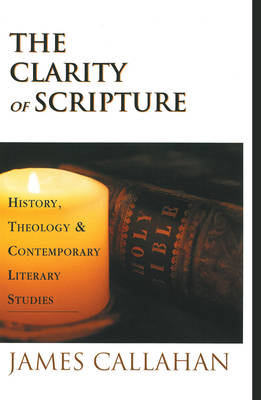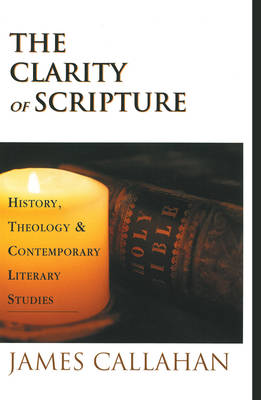
- Afhalen na 1 uur in een winkel met voorraad
- Gratis thuislevering in België vanaf € 30
- Ruim aanbod met 7 miljoen producten
- Afhalen na 1 uur in een winkel met voorraad
- Gratis thuislevering in België vanaf € 30
- Ruim aanbod met 7 miljoen producten
Zoeken
The Clarity of Scripture
History, Theology, & Contemporary Literary Studies
James Callahan
Paperback | Engels
€ 47,45
+ 94 punten
Uitvoering
Omschrijving
IS SCRIPTURE CLEAR? IF IT IS, WHY DO PORTIONS OF IT SEEM SO OBSCURE? IF IT ISN'T, WHY HAVE THEOLOGIANS SPENT SO MUCH TIME DEFENDING THE NOTION OF ITS CLARITY? AND MORE IMPORTANT, ARE CHRISTIANS ENGAGED IN A FUTILE EFFORT IN TRYING TO READ AND UNDERSTAND IT? JAMES CALLAHAN OFFERS VALUABLE INSIGHT INTO THE COMPLEX NOTION of biblical perspicuity. He sets the issues within the history of the church and traces how the Bible's clarity has been understood practically and theologically over time. With precision and care he clarifies the role of historical context, authorial intent and reader response in a constructive articulation of how we come to understand Scripture's meaning. Contemporary literary studies inform his discussion and suggest the importance of intertextuality and intratextuality in the reading of Scripture. Ultimately, Callahan argues, Scripture must be viewed as a privileged text within a privileged community. Nevertheless, it must be read, not arrogantly, but with humility under the searching glance of the God who caused it to be written.
Specificaties
Betrokkenen
- Auteur(s):
- Uitgeverij:
Inhoud
- Aantal bladzijden:
- 272
- Taal:
- Engels
Eigenschappen
- Productcode (EAN):
- 9781725283657
- Verschijningsdatum:
- 31/08/2020
- Uitvoering:
- Paperback
- Formaat:
- Trade paperback (VS)
- Afmetingen:
- 152 mm x 229 mm
- Gewicht:
- 367 g

Alleen bij Standaard Boekhandel
+ 94 punten op je klantenkaart van Standaard Boekhandel
Beoordelingen
We publiceren alleen reviews die voldoen aan de voorwaarden voor reviews. Bekijk onze voorwaarden voor reviews.











